https://www.youtube.com/watch?v=MAYJhnEcdRY
#19 How to Get an Owner Builder Construction Loan

OK , this is gonna be a good one I may find , hey , this is Keith Kels with how to build your own home .
Uh going live with a um Facebook and Instagram at the same time .
Uh If you think I'm going cross eye , that's because I'm trying to look at Instagram and look at Facebook at the same time .
Uh So I'm not crossed .
I just want to let you know that we're going to talk today about how to get an owner builder , construction loan .
This is a big question .
A and I'm going to go over a lot of information .
So I'm gonna give , uh give you just a second to go off and get some piece of paper .
You're gonna want to take some notes .
Of course , you can listen to this .
Uh As much as you want .

Uh I'm gonna cover some ground here on how to go about getting lending as an owner builder .
Uh owner builder loans are for borrowers wanting to build their own home without a general contractor .
They do exist .
I've used them a lot banks and credit unions sometimes do not lend to owner builders unless they have a G C on board .
And we , we are going to talk about that today .
I want to give you my best advice uh regarding qualifications uh and knowing the real cost to building your area .
And then the process , there's a couple of things you're gonna wanna have in your head before you even begin .
And that is to get qualified , know the real cost per square foot and know the process .
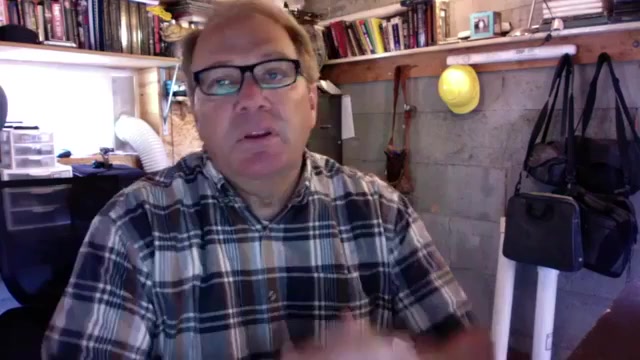
Now , with regard to getting qualified , all you really need to do is you go into the bank and say , hey , I'm your lending institution and don't tell them that you're an owner builder , you just want to see what you qualify for .
Now , typically that's 28% of your income .
It could fluctuate up and down a little bit , but typically 28% of your income is what you qualify for and they'll look at your loan to value your debt and all that kind of stuff .
I'm not a lender , but typically that's what they're gonna be looking at what you need to know before you even go into the bank , which would be very , very helpful is to know the real cost per square foot .
And the way you do this is you look at homes in your area that are brand new or at least somewhere in your area within a few miles .

If there's a new home that has gone up and it's been sold , you wanna see and if it's the value quality that you like , take the total cost of that home and divide that by the total square feet of that home .
And then it will tell you how much per square foot that home was built for .
Now , I have a program .
It's uh thinking about being an owner builder .
It's at how to build your own home dot com .
Again , just go to how to build your own home dot com .
Click on the introductory course .
It's 11 modules .
It's only $15 .
It has two or three pdfs in there and formulas that help you go through this .
And why I recommend that is because you have to factor in the cost to build without the general contractor fee and without some realtor fees because that's your real cost to build .
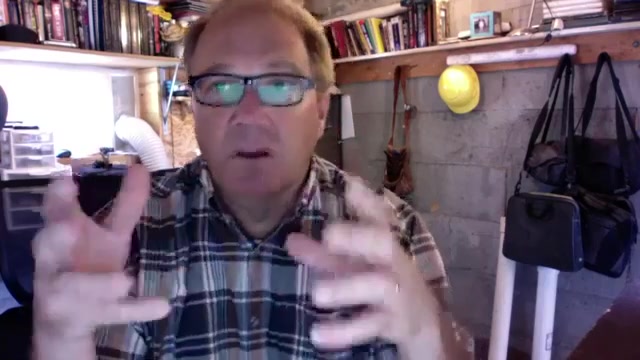
Uh , you are not competing with the market , you're competing with what you can do as an owner builder .
And so that's something to keep in mind the formulas PDF S download all the worksheets .
I have help you , uh through , through that process .
So again , I strongly recommend taking that class .
Uh , so again , get qualified , go into the bank .
Tell them I , I'm a builder .
Uh , uh , you don't need to say owner builder , just say I'm , I'm a builder .
I'm I need to get qualified to see what I qualify for .
I know the real cost per square foot and know the process .
Uh One other thing you may want to know , in advance is , do you have any down payment ?
Either the land is paid for or 15 to 20% .
They are going to ask for it because they want to see you have skin in the game , especially owner builders .
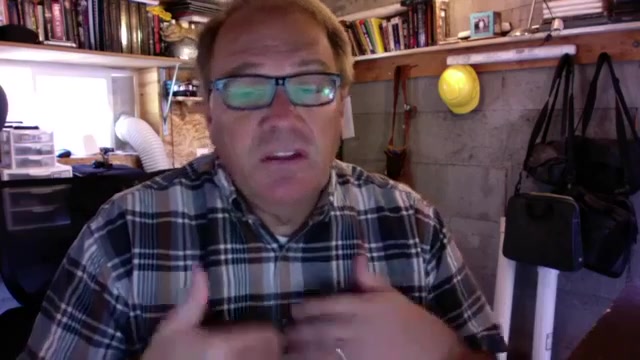
When I first did my home many , many years ago , they wanted to see at least a 20% I think back then it was 10% I can't remember .
Um But the skin in the game is something very , very important for our owner builders .
And they're gonna want to see that if you have the land paid for it , they're gonna ask you to put that land down as a down payment for the for the loan or at least , or at least to secure it .
Um Now , if a bank will not qualify you without a general contractor on board , I have some solutions for you .
I have some ideas that I want you to consider and look at .
But before I get into some of those solutions , I wanna help you understand uh what a general contractor is .
A lot of states , believe it or not , do not require a general contractor , license to build a home , especially in the Midwest , Texas .

Uh even New York in rural areas , they don't require it .
But once you go into the cities , they require licensing regulation , all kinds of stuff .
And I think a lot of states because they're so diverse with rural environments versus city environments , the state didn't want to come down on the whole state and require a certain mandate on general contractor licensing .
And so a lot of states don't require a general contractor to , to license , but a lot of cities do .
Some states are different .
Some states say that you can be a handyman and you can do stuff up to 3000 , 4000 , 10,000 .
Even some states allow a handyman to do work up to 10 , up to $50,000 without being licensed .
I live in one of the more heavily regulated states in the nation .
I have to pass a general contractor exam .
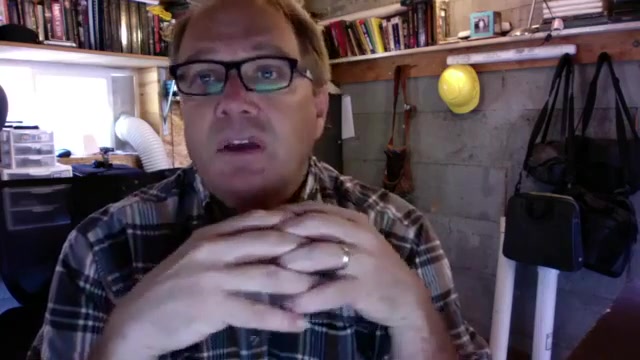
I also have to pass a law exam and I also have to prove uh at least two years of super of supervisory experience before I could , I can even take the exam .
And the reason for that is because Utah has been on been in a high growth build for many , many , many , many years and throughout the entire state .
So that's basically a universal thing throughout the entire state of Utah .
Other states are not , not like that .
Uh , check your state .
Um , licensing board .
I'm gonna create , I have a , a PDF , I'm gonna create soon .
I've been collecting a lot of the information , not the full state requirements , but basically the general parameters of the state .
And , uh , like I know California's uh requirement , uh , you can build up to four homes every year as an owner builder in the state of California .
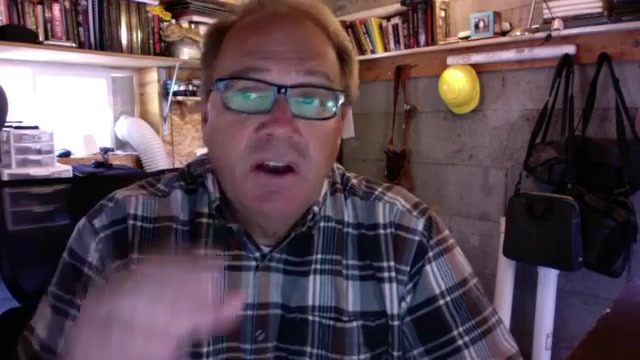
Not many people know that , uh , you can even build a for plex as an owner builder in the state of California .
Now , they have high regulation with regard to liability workman's comp all that kind of stuff .
Uh , they require a lot of taxes and stuff like that .
But as far as general contracting , there's a lot you can do without a license as a general contractor .
They just wanna make sure your liability is covered and your insurance is covered , but you're limited on how much you can build .
Solution .
Number one , when it comes to banks asking for a general contractor , ask the bank if an owner builder course can replace the G C , it would be like , hey , uh there's a course online that offers all this information a ready to go budget .
It offers checklists , draw sheets , uh subcontractor agreements , full big picture , uh uh scheduling the whole nine yards .
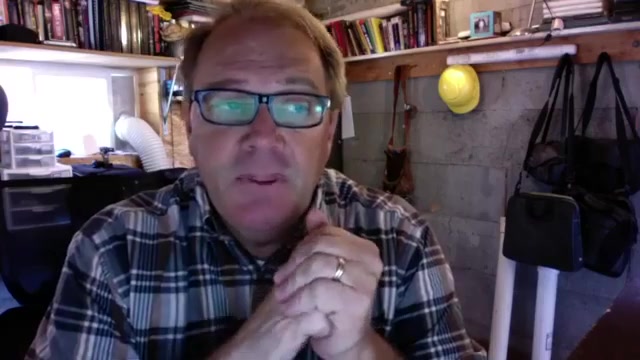
If something like that , it would help what their main concern is , is liability and budgeting because they've been through the experience of a lot of people with no experience in construction and they come to the bank and they give them a budget and oftentimes banks are experienced enough to know that this is not an effective budget .
And I'm gonna give you a piece of advice right now when it comes to budgeting , don't budget at zero on everything .
It's a pet peeve , it will run you .
Um ragged and you will be over budget at the end of the build .
I promise you , it will happen every single time owner builders tend to build a budget .
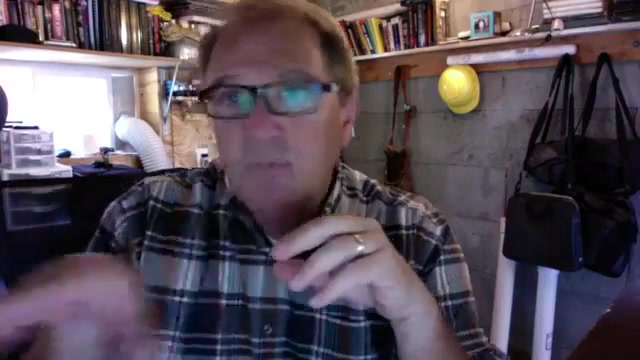
And that , let's say a drywall guy comes in and um gives a bid , but there's a bunch of extra costs in there for different um features and uh coffered ceilings or different uh coatings , all that kind of stuff .
But they choose the cheapest item on every budget and they put that in the budget and they give that to the bank , you will be over budget .
And if you don't have the additional money to cover that , then you have to , you have to get a second , a whole new appraisal banks going to not get a lend to that typically unless they have another appraisal , it's a nightmare .
And so banks go through this , they , their experience lending institutions have been through the process a lot of the times of lending to people with less experience in something .
And as a result , they , they kind of back away from that .
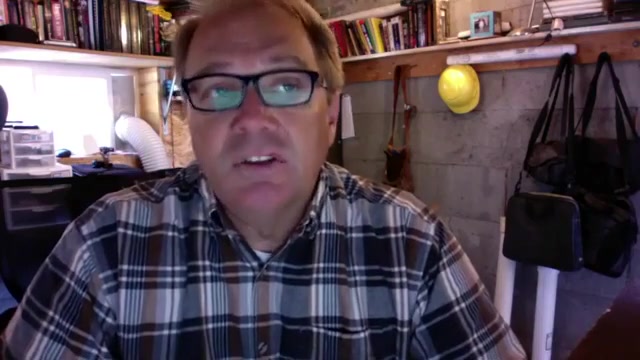
Well , when I go through a budget , I'm about ready to go through a budget with a student of mine .
And before they submit the budget to the bank , I actually walk them through it .
I actually talk with them and I make sure that we have sufficient in areas that tend to go over a lot of the time .
I've talked about this in other videos .
I'm gonna go through it in more detail in a future video on the real uh factor of budgeting .
I've built 63 homes with a nonprofit housing organization and they were all under budget .
And uh that's because I hid money in the budget .
That's a secret .
You , you have to , you have to know where to hide money in the budget .
And I'm gonna talk to you about that later down the road .
It's not deceptive , it's protective and it's the way you keep yourself from going over budget .

So ask the bank if an owner builder course is available and you can give them a link and they just have a PDF that gives them a full explanation about the uh program .
And if that's available and if they're , if they're OK with that and stress that the , the course emphasizes budgeting and really gives him an educated understanding on budgeting .
Uh just go to how to build your own home dot com and it helps them uh with that process and they can check it out .
There's a good introduction there on the main page with a video instruction .
Uh uh And then um solution number two , this is something that , that uh is kind of interesting that I hope that it may help some of you out there .
Ask if A G C in your area that you trust will consult on a project and then ask the bank if they will allow for this meaning if they will allow for a G C consultant on the project .
Now , they may say , well , is the G C willing to use this liability on the job ?

Uh or not ?
That's where it may get a little iffy .
Some G CS will be ok with that .
Some will not .
Uh I've dealt with some G CS where we say I'll tell you what , yeah , you can build your home .
Uh But I'm gonna put my sign out front and I'm gonna come to the job site and I'm gonna put a punch list of things I want you to deal with uh here and there .
And uh they may require to run the budgeting .
They may not require the budgeting , meaning managing of the money because it's their names on the line .
It's all about , it's all about how close in a relationship you have with them and how you're able to work with them .
Uh And that's an option .
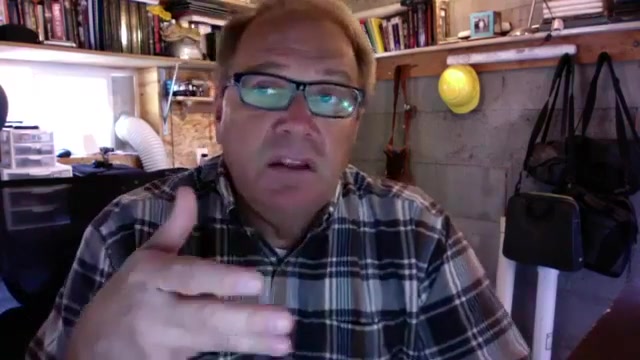
Some of them will charge uh anywhere from $2000 to $5000 to be a consultant , but they will actually come on the job site , walk through the job site , check things out , give you a punch list maybe and uh tell you what to do next .
OK ?
I want you to order this .
Now , I want you to tell this guy to come out and do this work on the job .
They may be that detailed or they may just be , you know , hands off you , you never know .
Uh some are more loose goose , some are really , really on top of it .
So if you can get a G C consultant , you can still save quite a bit of money .
And some banks will allow for that .
You just want to find out if the bank is gonna require the general contractor to actually give his liability on the project .
Right ?
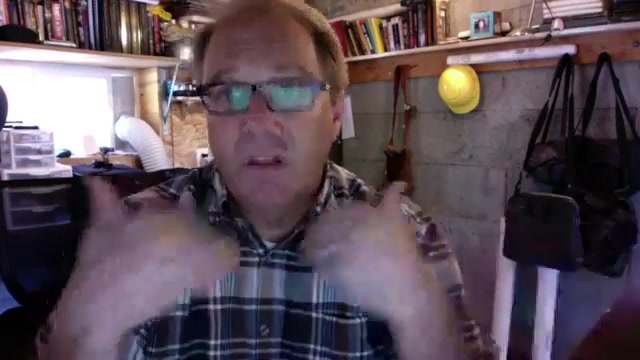
If not , then you can ask , well , can he consult or she consult and then I take care of my own liability and you get your own liability insurance with your own insurance coverage .
Uh Number , the next one here .
Solution three is if the lender is still needing a G C uh ask around to see if A G C A general contractor is willing to manage up to mechanical inspection .
Now , mechanical inspection is uh up to plumbing , heating and air conditioning and electrical .
And once all that is done , you typically go for a multiple way inspection in my particular area .

It's a seven way inspection , some areas , it's a four way inspection , others just call it mechanical inspection and it includes your framing , your sheer framing , all of your mechanical H V C plumbing , electrical , et cetera , even your low voltage , they come in and inspect everything .
That's the complicated part .
That's the scary part for most owner builders is to get to that point .
Once you get to that point , then it's installation , drywall , finished carpentry .
Um tile , the works cabinetry and most owner builders uh really are kind of home free at that point .
That's like the marathon .
Uh It's almost like the halfway point .
And so ask if they will G C up to that point and then you take it on after that , I signed a contract with some clients and uh I'm taking them all the way to seven way inspection .

My name will still be on the placard on the front .
I charge them a small fee for some budgeting , but I'm actually saving them close to $11,000 in doing that .
And um they're happy spreading some good word about me .
Uh So there's , there's options out there .
Keep in mind that a general contractor makes most of their money , their fee at up to the mechanical inspection because that's where all the big money is .
That's where all your excavation , your concrete , your framing , uh labor framing , lumber package , all the rough electrical , all the rough plumbing , all the rough mechanical for H V .
Ach V AC is heating , ventilation , air conditioning .
All those are big cost items and that's when they can apply their feed , those big cost items .

But when it comes to painting and even drop insulation , the invoices start to drop substantially except for maybe cabinetry here and there and some other miscellaneous items , but the invoicing drops .
So they're not making nearly as much on the finish side as they are on the major component of the build and that's why a lot of builders would say .
Yeah , I'll , I'll tell you what you , you can manage it up to this point and you take it on after that because you're not gonna , you're not gonna run any risk with that .
I did that with a client about two years ago .
Um He hung out at the job site , kind of drove my subcontractors crazy .
He was kind of ad diy self help , uh kind of person .
He just didn't know anything about excavation , framing concrete .
A lot of miscellaneous things , plumbing and heating and air .
They were really kind of over his head .
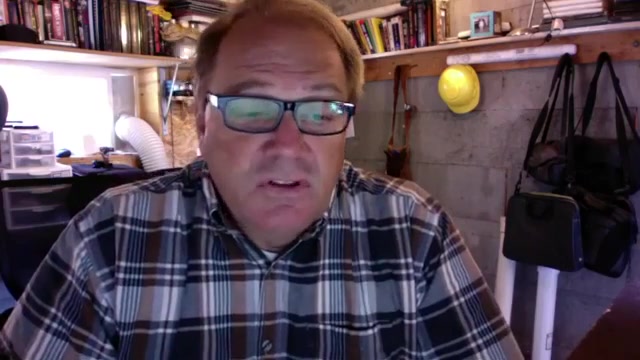
And uh when it was all said and done , he says , how , how , how about if I just buy you out ?
And I go , I got some money on the table , but let's , let's talk about it .
So I I I we negotiated something and he took it on , he took the job after a certain point .
So that's an option as well .
You may talk with some G CS and uh see if they're interested in that .
But uh if you really run , wanna run the project all by yourself from start to finish again , go into the bank , find out what you qualify for and start from there again .
Take the class that I have online at how to build your own home dot com .
Now , once the lender approves the excuse me , owner , builder , finance loan , uh that's when you can start to move forward .
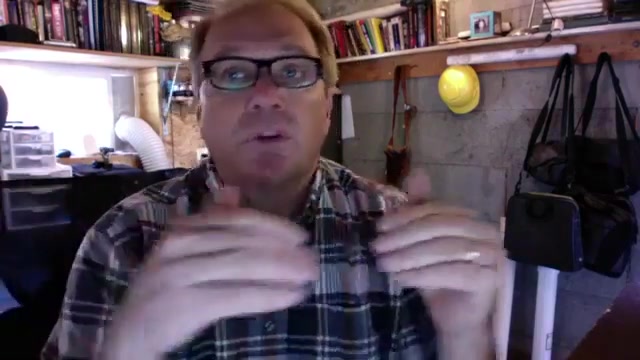
You know what you can build per square foot , you know what you qualify for , then you have something designed to fit that square feet uh , on that square footage .
And I'm gonna talk about design on how to design a home that is very cost efficient .
I , I put a post out , I think it comes out later this week .
Actually , we did it last week .
It's my bonus videos on youtube and I also post those on Facebook on roofing and watch those bonus videos .
Weekly bonus videos .
I'm always talking about ways to um quality time cost .
Quality time cost .
I keep hitting that over and over again .
Don't ignore that cost is the last thing you look at .
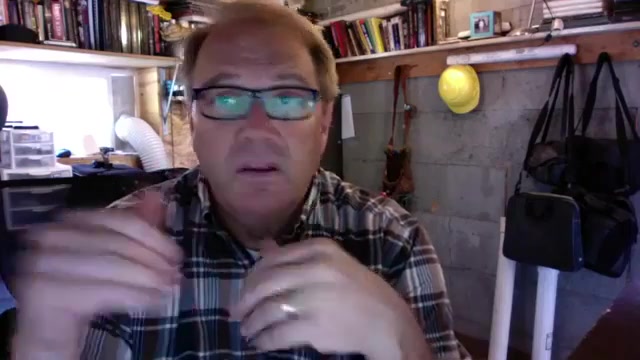
Quality is the first thing you look at time is the second thing you look at and then of course , cost is broken into uh labor and materials and a lot of people never , they look at just cost only they , they forget time .
Time is a big issue in construction and then they completely toss quality out the window and when that happens , you suffer the consequences and I I will keep talking about that till my ears and your ears are blue .
Anyway , once the lender proves how much you qualify for and you get some plans and you get them engineered and then you have what's called a specification sheet and you show the quality of the bill that you want .
A lot of times , owner builders don't include that .
They'll go to the bank and say now here are the plans and uh tell us what we qualify for and here's what it's gonna cost to build that .
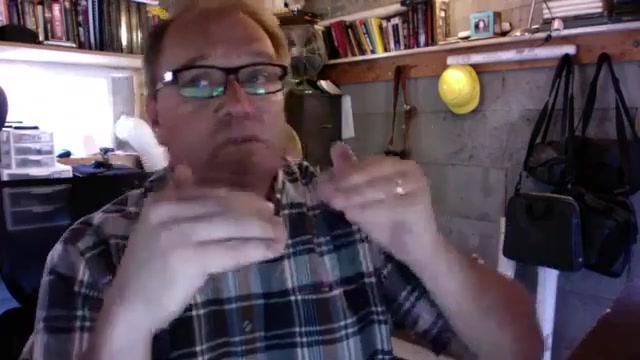
And then hopefully they match if they don't match .
And the home is under a home is over the cost of what it's going to appraise for .
Typically what hap what has happened is you haven't given any specifications as to the quality of that build .
I've got clients facing that problem right now .
They're , they're , they're battling an appraiser who is kind of notorious in the area for under appraising value , but they didn't submit the specification sheet that I created showing all the value a very high tech roof , uh um a very high efficient furnace , uh A lot of value in the home that wasn't considered uh stuff like that .
And so the appraiser just know that whatever and they throw up their hands and they just , they lowball it as far as the appraisal is concerned , push the value of the home , have everything detailed .
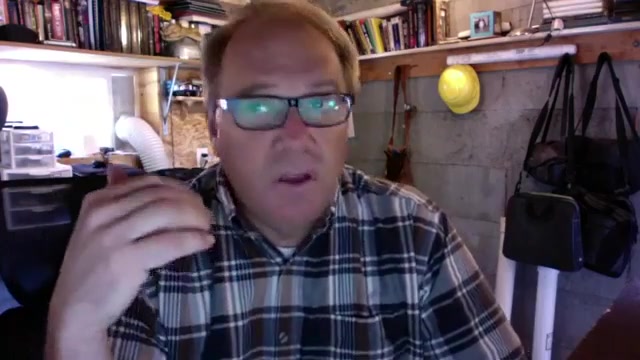
And when you do go to the bank , you say , ok , let's go ahead and push for an appraisal based upon the specifications and everything you give that appraiser that's gonna help a lot .
Don't assume your appraiser is going to know all the quality you want to do on your home .
Tell them , tell them what you are going to do and they can factor that in otherwise they'll just go with the lowest comparable analysis in your area and you're kind of stuck with that .
All right , now , down payments can vary for types of loans .
And if you own the land that they're gonna ask you to subordinate that land to the bank as your down payment .
So if you can get the land paid off , that's , that's great .
Uh You know , construction loans are variable .
They can be a construction of perm .
I'm not a finance person , I'm not even a lender , but I've been through all kinds of different loans .

There's a construction of perm , there's just a construction loan itself .
Um There's a construction to completion , meaning a construction completion loan which is basically a second until you're refinanced and everything's wrapped in .
I've seen people deal with the original construction loan , lose or spend that money .
Uh And then they need an extra 15 or 20,000 .
So they get another loan and then when they refinance all that's paid off , uh ground up construction lot and construction , which is basically one mortgage that includes the lot , existing structure , rehab , renovation , remodel , construction loans .
There's a lot of different loans out there .
You just need to go into your bank and your lending institution and start to talk again when it comes to lenders .
Uh federal or credit unions are some of the best .
Uh They're local , locally owned .
They know the market , they know their clients , they want to serve their clients .

The bank is typically owned by the members anyway .
And so there's a harder push for members to be able to lend or borrow from the bank or , or the credit union .
So if you're not a member of a credit union , I strongly recommend trying to be one .
Local banks are ok if they're locally owned again , they know their market .
Uh the larger banks , the B A s and the Wells Fargo's and whatnot .
Those are the hardest to get uh owner builder loans from .
They are more apt to service big business lending and that kind of stuff .
They're not as integrated into the local market as local banks are .
So , in fact , I in all my years of building , I've , I've always worked with local banks with , with uh construction loans .
I've not worked with the larger banks that kind of tells you something .

Um There's also the um F H A lending and there's also rural community housing lending uh that's gonna require some different proof of income and stuff like that .
But there's all kinds of lending out there by searching and asking around .
You can find out I worked with the USDA for , you know , a couple of years built quite a few homes using the United States Department of Agriculture Funding .
And they have a rural housing division where they actually give lending uh to uh owner builders .
And that can be a very , very effective and efficient and very um low interest loan based upon your income .
But they have their own inspectors and their own inspectors can be kind of uh uh challenging to work with .
So you deal with your city or county inspection , but you're also gonna deal with USDA inspections as well .

So keep that in mind and sometimes they ask for a general contractor just to come on board to sign off on stuff .
But because they have their own inspections , sometimes they've been a little more lax on that .
It depends on the area , depends on the state director and what they decide .
Uh So that's something to keep in mind .
A lot of information there .
I didn't want to belabor it .
I wanted to give you guys a really big overall picture of the process involved in getting lending as an owner builder .
Again , the biggest hurdle you want to get is 20% to 15% .
It could be higher , it could be a little lower of uh the total cost to build .
And the only way to figure out the total cost to build is to find out what homes are being sold for in your area per square foot .
And of course , you pull out builder fees and you pull out the realtor fees except for the realtor fee in the land .

I have the worksheet at how to build your own home dot com .
Click on the thinking about being an owner builder course and that kind of walks you through that whole course , that and it really gives you a real good overall picture .
Now , if you're looking for additional help , I do have that , that's , it's available .
Uh I do uh consult students throughout the country and I check text and email in the morning and I take care of those as well in the evening .
I also have a self managed package that gives you a budget .
It's a working budget .
It's been used on over 100 homes and it's all you have to do is plug in the numbers , takes you through the whole process .
I have checklists for every stage .
So you can literally walk on a job site with a clipboard , print out the checklist and say , ok , I need to check installation .
What do I need to check ?
Ok , let's go over here and check that .
Ok .
Ok .
And it gives you a full description of everything .
So you don't feel like you're in the dark , you just check things off as they move forward through the entire process .

Draw sheets , subcontractor agreements , scheduling .
Uh We're gonna talk about scheduling down the road .
A lot of information there .
Uh And it's just a ready to go system for you to replace a general contractor and save lots and lots of money .
This is Keith Kels with how to build your own home again .
If you have any questions , feel free to send them through any of the social media , either on Instagram or Facebook .
Sorry about the cross side today .
It's been my pleasure .
Uh tune in next time and again .
Stay tune .
Subscribe to my Facebook , Instagram and youtube channels .
You'll get notified of posts .
You can also go to how to build your own home .
And I have this post along with the full written version of the post that I send out to my subscribers , uh even some additional information in those posts .
So go to those places , subscribe and I'll see you again .
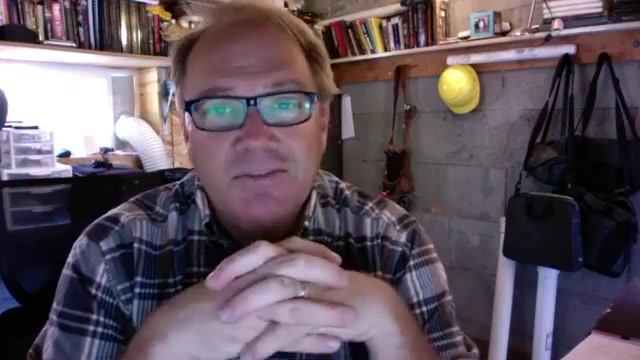
Thanks .
This is in .
Are you looking for a way to reach a wider audience and get more views on your videos?
Our innovative video to text transcribing service can help you do just that.
We provide accurate transcriptions of your videos along with visual content that will help you attract new viewers and keep them engaged. Plus, our data analytics and ad campaign tools can help you monetize your content and maximize your revenue.
Let's partner up and take your video content to the next level!
Contact us today to learn more.